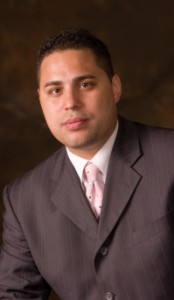Today I read an article from Leadership That Creates the Future and want to share it with those of you who are engaging in Community Engagement, Revitalization or Restoration. The environment you create as a leader is more important than the persona you want to project. True leadership is about others, not yourself. Enjoy reading:
Building Leadership with Thought-Provoking Questions
Posted on March 16, 2015
Leadership – there are likely few topics in the world about which more has been written. With so many resources and sometimes contradictory theories to consider (think “Servant Leadership” and “Machiavellian”), finding a personal leadership style that feels authentically “you” can sometimes seem like an unending quest. Establishing the leadership culture in an organization can be an equally challenging and continuously evolving process.
Leadership That Creates the Future reached out to experts in Creating the Future’s Facebook group for consultants to community benefit organizations and asked them –What compelling questions about leadership do you like to explore? Their questions provide a framework for discovering personal insights, values, and beliefs that can help anyone on a journey toward reaching their highest potential as a leader.
Consider the following:
• How do you approach conflict and confrontation?
• How do you identify what motivates your team – not just imposing what motivates you onto them – and how do you use that to inspire greatness?
• How do you identify and develop natural leaders in your community – those with no formal power but to whom people listen?
• How do you help develop everyone’s leadership abilities?
• How do you create an environment where others feel safe to fail?
• How do great system or network leaders differ, if at all, from great organizational leaders?
• How do we help our followers become great followers?
• What would be possible if we stopped talking about leaders and, instead, focused on leadership?
• What do we hope that leadership makes possible and how can everyone benefit as a result of it?
• How do we move away from “hero” leadership (focused on individual traits) to transformational leadership (focused on positive social change)?
• How do we make leadership more inclusive?
Through a thoughtful exploration of questions such as these, leaders, potential leaders, and followers can better identify the conditions through which leadership can make a positive difference in our organizations, communities, and the world.
What are some additional questions that are helping you to identify the principles and practices that shape you and your organization’s approach to leadership?
Thank you to Freya Bradford, Kimberly Diggs Lauth, Jane Garthson, Andrea John-Smith, Joyce Lee-Ibarra, Rhonda Lorch, Justin Pollock, and Kelly Trusty for contributing questions for this blog post.
Links:
Leadership That Creates the Future: http://blogs.creatingthefuture.org
Freya Bradford: LinkedIn
Kimberly Diggs Lauth: Kim Lauth Consulting
Jane Garthson: Garthson Leadership Centre
Andrea John-Smith: LinkedIn
Joyce Lee-Ibarra: JLI Consulting
Rhonda Lorch: Lorch and Associates
Justin Pollock: OrgForward
Kelly Trusty: LinkedIn



